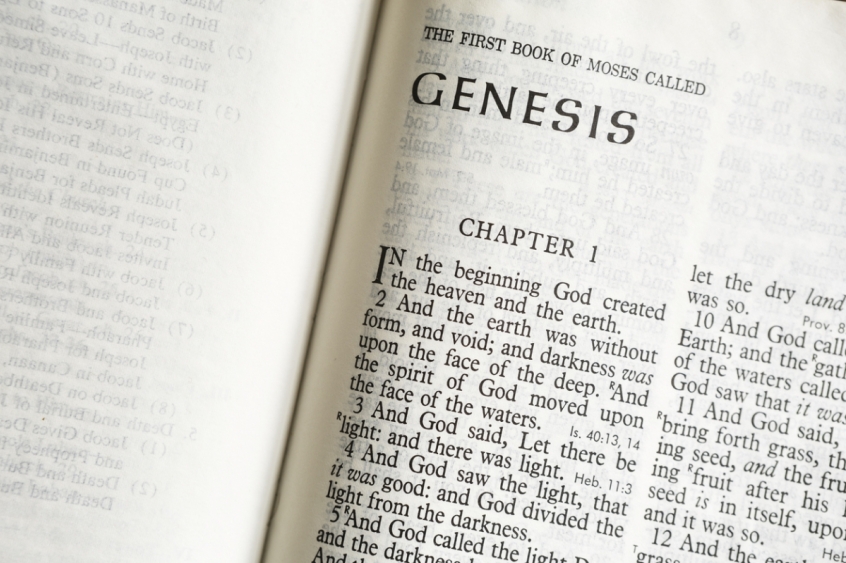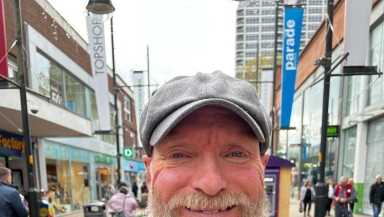
The Crown Prosecution Service (CPS) told lawyers defending an arrested street preacher that parts of the Bible are "no longer appropriate in modern society".
The astonishing claim was made in a document sent by the CPS to the Christian Legal Centre, who defended John Dunn after his arrest over comments he made about homosexuality.
When preaching in Swindon town centre on 1 November 2020, two women walked past holding hands, to which Mr Dunn said: "I hope you are sisters."
When they informed him that they were in a same-sex marriage, Mr Dunn quoted 1 Corinthians 6 and told them, "It says in the Bible that homosexuals will not inherit the kingdom of God."
The women were offended and reported him to the police. They also alleged that Mr Dunn shouted that they would "burn in hell", despite his use of a voice box after surviving throat cancer. He denies the allegation.
Mr Dunn voluntarily attended a police station for interview where he was warned that he would be arrested if he tried to leave. He was then summonsed for an offence under section 5 of the Public Order Act, which covers threatening, abusive or disorderly behaviour or words.

The CPS alleged that Mr Dunn had committed hate speech that offended the women, and its lawyers argued that prosecution of Mr Dunn was "necessary" and "proportionate".
In the document submitted to Mr Dunn's defence, the CPS stated, "There are references in the bible which are simply no longer appropriate in modern society and which would be deemed offensive if stated in public."
Lawyers for Mr Dunn argued that the law must protect the expression of opinions "even if these cross the sensibilities of the majority of the population".
They also argued that "simply conveying Biblical truth" did not amount to abuse.
A hearing was due to take place on 13 November which could have resulted in a criminal record for Mr Dunn, but the CPS dropped the case against him after the two complainants did not come forward to give evidence.
A CPS spokesperson said: "On the day of the trial the complainants could not be located to provide vital evidence for the prosecution, which resulted in us offering no evidence."
It added, "It is not the function of the CPS to decide whether a person is guilty of a criminal offence, but to make fair, independent and objective assessments of the evidence to put our case before the court."
Mr Dunn said he was "relieved and grateful" that the case against him has been dropped. He said that his intention was only to declare God's truth out of love and compassion for the people passing by and listening. He now plans to return to street preaching in Swindon.
"When I preach, I only ever say what is in the Bible," he said.
"When they told me they were in a same-sex marriage, I was concerned for them. I had to communicate the consequences of their actions based on what the Bible says.
"I wanted to warn them, not out of condemnation, but out of love. I wanted to them to know that there is forgiveness through the love of Jesus.
"Nine times out of ten when I preach or engage with people on the streets, people ask me to pray for them."
Andrea Williams, chief executive of the Christian Legal Centre, said the approach of the CPS to the case and the Bible in general was "deeply concerning".
She said, "The Bible and its teachings are the foundation of our society and have provided many of the freedoms and protections that we still enjoy today.
"It is extraordinary that the prosecution, speaking on behalf of the state, could say that the Bible contains abusive words which, when spoken in public, constitute a criminal offence.
"The view from the CPS was that the Bible is offensive and contains illegal speech which should not be shared in public.
"'Offence' is an entirely subjective concept and is easily manipulated to shut down viewpoints that people simply don't like.
"Any suggestion that there is a right not to be offended must be strongly resisted. In today's democracy, we need the freedom to debate, challenge and disagree."













